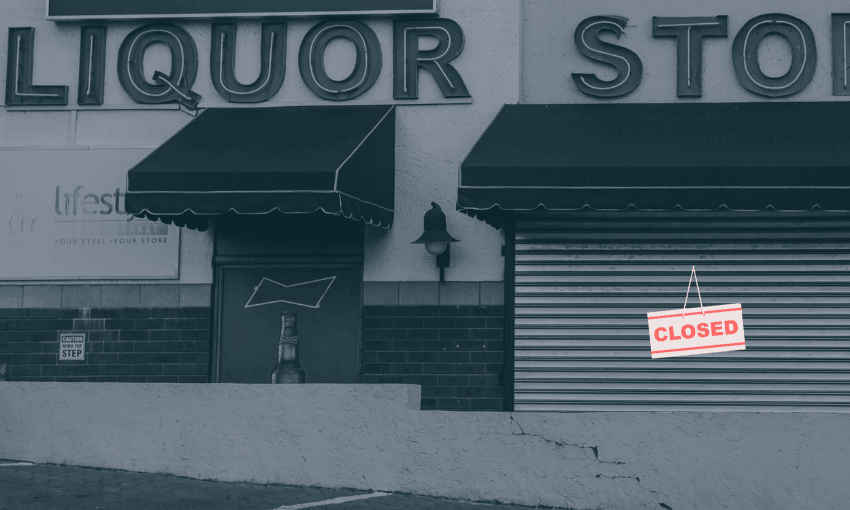Alcohol is our most harmful drug, yet industry groups have inside access during the development of alcohol harm reduction strategy, where they can put pressure on officials to water down policy advice. It has to stop, argues Steve Randerson.
Most New Zealanders would be shocked to learn the alcohol industry is regularly invited to help shape our national health policies on alcohol. But that’s exactly what’s happening.
Recent information uncovered by RNZ through the Official Information Act shows senior health officials in the Public Health Agency are “expected” to work directly with alcohol industry representatives. Who set this expectation or what the expectations entail is unclear, but the information reveals the agency’s diligent response.
Regular interactions occurred between four separate industry associations representing spirits, wine, beer and hospitality and the Public Health Agency, part of the Ministry of Health. A group manager with responsibilities for alcohol harm reduction, Ross Bell, emerged as the main conduit for contact.
The interactions included regular meetings, ongoing email contact and consultation on alcohol harm reduction plans. The alcohol industry had been involved in the development of an action plan for foetal alcohol spectrum disorder. All four industry groups were invited to give input to a new guiding framework for spending the $16 million alcohol levy, a public fund meant to reduce harm; in contrast, to our knowledge, there was no opportunity for most of Aotearoa’s major public health organisations that work on alcohol to contribute to the framework.
One industry representative questioned a government refresh of New Zealand’s outdated guidance on lower-risk drinking levels, which some other countries now set considerably lower to reflect current evidence of the health risks of alcohol. The partially completed project was subsequently put on hold. While the pause was described as an internal ministry decision, current systems leave ministry staff exposed to potential industry pressure and there is a concerning lack of transparency around possible industry influence. For instance, alcohol industry feedback on the alcohol levy framework was redacted from the OIA documents supplied to RNZ.
There’s a reason this matters. Alcohol is our most harmful drug. It causes cancer and foetal alcohol spectrum disorder, and costs our country more than $9 billion a year in health and social harm. The damage is sustained by our lack of effective safeguards around the supply and promotion of alcohol, such as online marketing and the higher numbers of outlets in communities at greater risk of harm.
Communities around the country have long fought to have more say on where and how alcohol is sold, while well-funded alcohol industry groups have doggedly opposed such changes in our courts, media and parliament. In this context the inside access alcohol industry representatives are enjoying during the development of alcohol harm reduction strategy is disheartening.
Industry involvement in public health policy isn’t just bad practice. It’s a major conflict of interest. This is why Health Coalition Aotearoa campaigns to regulate lobbying in Aotearoa.
Almost half the alcohol sold in Aotearoa is consumed in heavy drinking sessions, while lighter alcohol consumption also increases the risk of cancer and other diseases. Any steps that broadly reduce these harms will impact alcohol industry profits, creating an inescapable incentive to undermine or block effective change. A senior health official put it bluntly:
“In my experience… these alcohol interests have zero interest in reducing harm (or sales of booze) and a huge purse to fund their lawyers.”
Despite this, the government continues to expect the alcohol industry to have a seat at the table, where they can put pressure on officials to water down policy advice to ministers well before the public has a say.
In contrast, New Zealand is required to protect our tobacco control public health policies from the commercial interests of the tobacco industry – since 2005 we have been party to the World Health Organization’s Framework Convention on Tobacco Control. This agreement recognises the “irreconcilable conflict” between tobacco industry profits and public health. The same logic applies to alcohol – yet no such protections exist.
The Ministry of Health and Customs have continued to interact with tobacco industry representatives for tobacco regulation purposes, but one improvement of Aotearoa signing the framework convention is they now both maintain a public register of these interactions, which should only occur where strictly necessary. Other parts of the government may not have been so scrupulous, however. NZ First politicians have been reported to be closely affiliated with industry executives, and several coalition government ministers have appeared to use similar arguments as tobacco industry representatives to defend their repeal of the tobacco endgame measures in the Smokefree Environments and Regulated Products Act 1990, suggesting a common script.
While the New Zealand government is yet to fully implement its responsibilities under the framework convention, it is a strong step in the right direction, and Labour health spokesperson Ayesha Verrall has proposed legislation to promote stronger compliance. We urgently need a similarly stringent approach for alcohol and await new rules for engagement with the alcohol lobby being considered by the Ministry of Health.
The World Health Organization’s Global Alcohol Action Plan 2022-2030 is clear: governments should protect public policy to reduce alcohol harms from commercial and other vested interests that undermine health. Most New Zealanders agree – a recent poll found 71% believe the alcohol industry should have no role in alcohol policy development.
This strong public support should give politicians the courage to draw clear boundaries around industry involvement in policy intended to reduce alcohol harm.
We need transparency. Industry groups should be allowed to submit views through public consultation processes like everyone else. But they must not be allowed behind closed doors to shape the rules that affect our health.

